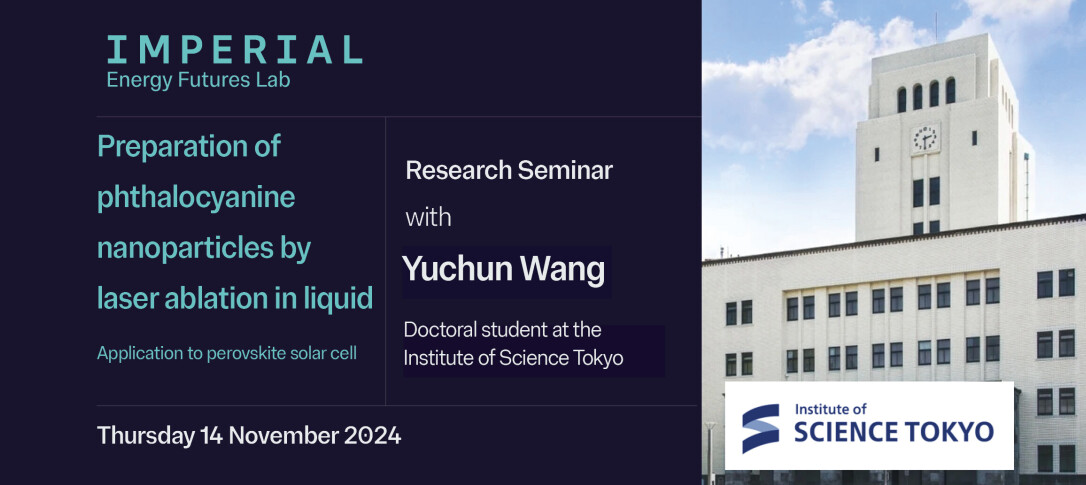
Preparation of phthalocyanine nanoparticles by laser ablation in liquid – Application to perovskite solar cell
Hybrid organic-inorganic solar cells offer efficient energy conversion, with nickel phthalocyanine (NiPc) showing potential as a hole-transporting material due to its stability and semiconducting properties. However, NiPc’s poor solubility limits conventional thin-film deposition. This study addresses this issue by synthesizing NiPc nanoparticles via laser ablation in liquid (LAL), creating solutions suitable for spin coating. NiPc powder was suspended in deionized water and irradiated with an Nd laser, producing nanoparticles characterized by SEM, DLS, and UV-Vis spectroscopy. Thin films were then prepared using various solvents, with chloroform yielding the best solubility and resulting in uniform, smooth films. Increasing laser fluence reduced particle size and enhanced absorption, with UV-Vis confirming desirable optical properties for use in perovskite solar cells. In conclusion, NiPc nanoparticles were successfully synthesized and optimized for spin coating, with future work focusing on improving film quality for solar cell applications.
Speaker – Yuchun Wang, Doctoral student at the Institute of Science Tokyo
These seminars are being delivered by students participating in an exchange program between the Institute of Science Tokyo and Energy Futures Lab, Imperial College London. The programme offers a unique opportunity for the participants to deepen their academic and cultural understanding over the course of one intensive week. This collaborative initiative is designed to foster cross-institutional learning and innovation in the field of engineering and sustainable energy. The exchange not only aims to enhance technical skills but also to build lasting international connections and a broader perspective on global energy challenges.
About Energy Futures Lab
Energy Futures Lab is one of seven Global Institutes at Imperial College London. The institute was established to address global energy challenges by identifying and leading new opportunities to serve industry, government and society at large through high quality research, evidence and advocacy for positive change. The institute aims to promote energy innovation and advance systemic solutions for a sustainable energy future by bringing together the science, engineering and policy expertise at Imperial and fostering collaboration with a wide variety of external partners.